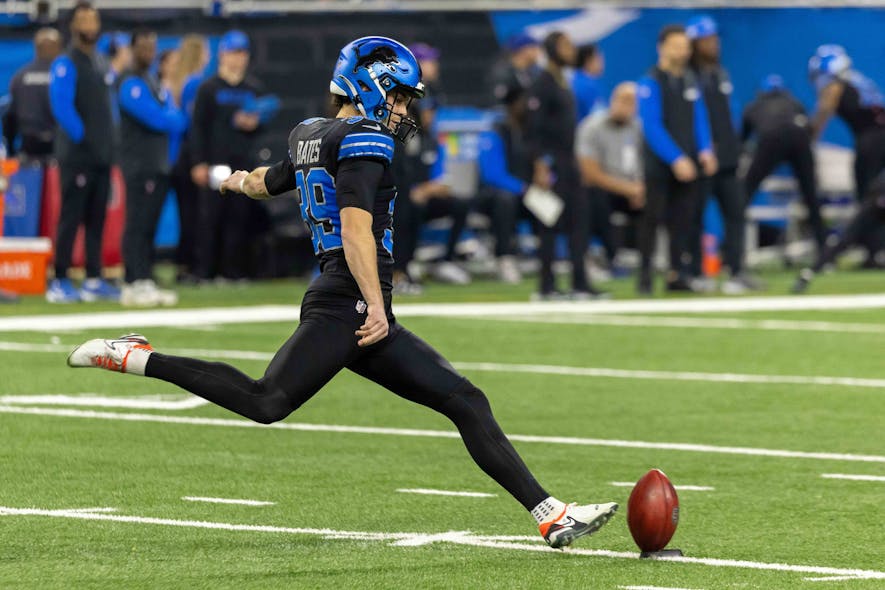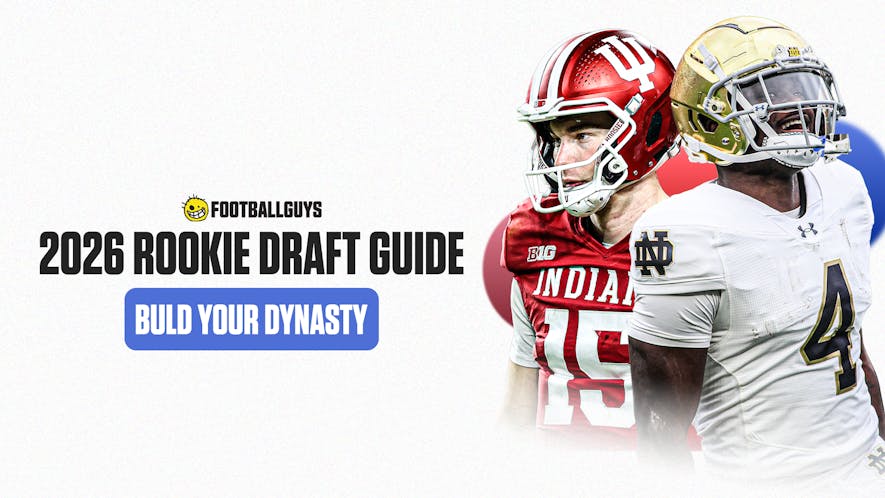The Dynasty Commissioner's Handbook is your guide to creating and overseeing a harmonious and enduring fantasy football league experience. In this seven-part series, we'll introduce you to your responsibilities for each phase of the dynasty lifecycle.
Preparations are complete. You've set the playlist. Now, it's showtime!
As the NFL regular season kicks off, you move your troupe onto the public stage.
RELATED: See Part 1 - Are You Ready to Lead? here
RELATED: See Part 2 - Putting the Band Together here
RELATED: See Part 3 - The Preseason Rehearsal here
The groundwork laid in the preseason now supports the dynamic interplay of weekly matchups, trades, and waiver-wire management. Your baton directs the league through the interwoven rhythms of competition in quest of a harmonious experience for all.
Guiding the Performance
Under your watchful eye, the regular season concert unfolds. Your primary role is to keep the band playing passionately and on pitch.
As each week approaches, ensure that lineups are properly set and unusual schedule events (e.g., holiday triple-headers, early starts for international games, special waivers times, etc.) are well-known.
As each week concludes, update league standings and contest leaders. Periodically publish highlights of the week's most interesting fantasy matchups.
Orchestrating Waiver Claims and Free Agency
Waivers are the rhythm section of your dynasty league - steady, essential, and often underappreciated. The system you choose determines how managers adjust their rosters and react to the weekly drumbeat of injuries and position battles.
Waiver Options
1. FAAB (Free Agent Acquisition Budget)
Think of FAAB as a free agent silent auction. Everyone submits a bid in secret, hoping theirs is the highest when the bids are opened. It rewards strategic restraint, long-term planning, and budget management. For dynasty leagues, it's the gold standard.
2. Rolling Waiver Priority
This is a more traditional option. Managers are stacked in order, and each successful claim drops them to the back of the line. It's orderly and familiar, and makes one's waiver wire position an asset to be managed throughout the season.
3. First-Come, First-Served (FCFS)
Chaos, meet caffeine. Once waivers clear, it's a footrace to claim players. This option favors those glued to their phones. The ol' "early bird gets the worm" routine.
Best Practices for Waivers and Free Agency:
- Publish a clear waivers schedule before the season begins. Specify the dates and times waivers will run for the entire season. Account for the NFL game schedule, especially around holidays. Decide if you will close waivers during the fantasy playoffs.
- Choose whether periods of FCFS free agent acquisitions will be allowed after waivers run, and - if so - when the FCFS window will close (typically just before the first scheduled NFL Sunday game kicks off).
- Document whether unspent FAAB budgets will carry over into the next season.
Harmonizing Trade Approvals and Deadlines
Trade negotiations are the improvisational duets of dynasty leagues - two creative, unpredictable (and sometimes a bit too free-form) roster management artists trying to make music together. Your job isn't to grade the music (or the musicians), but to ensure everyone's playing in the same key.
Who Should Approve Trades?
Establish and document a clear trade approval system. The primary options are:
1. Automatic Approval
When a trade offer is accepted, it takes effect immediately.
2. Commissioner Approval
Pending trades are either approved or denied, at your discretion. Your role isn't to judge trade equity, it's to prevent collusion, enforce the league rules, and rectify honest errors. You will approve most trades - even lopsided ones - especially if both trading parties express their concurrence.
3. League Vote
Trades are subject to leaguewide approval. Extending veto power to leaguemates, however, invites sour notes from the orchestra.
Trade Deadline
Most leagues disallow trades during the fantasy playoffs, to prevent last-minute roster stacking.
Motivating the Ensemble – Fostering League Participation
By midseason, some teams will drift out of contention and may begin to lose interest. To create an environment where even the last-place team remains involved until the curtain falls, consider these creative in-season engagement strategies:
Contests and Challenges
Don't just reward championships. Introduce side competitions, such as predicting weekly high scorers or fantasy match-up outcomes. Reward the high game scorer of the season, best NFL game outcome predictor (Survivor, NFL Pick'em), most-active trader, or most-frequent voter in league polls. Spread the stakes around.
All-Play Pool
Set aside a prize pool to share among your leaguemates in proportion to their season-long all-play percentage. This makes every game important to every team in the league every week of the fantasy season.
Last Place 'Bonus'
For some extra-spicy motivation, institute your favorite last-place punishment from Footballguy Gary Davenport's curated collection.
Handling Dissonance Like a Seasoned Conductor
Inactivity
If someone stops setting a legal lineup, don't let it fester. First, reach out privately. If needed, invoke your constitution's inactive manager clause. Whatever preserves your league's rhythm.
Tanking
Rebuilding is legit. Throwing games isn't. Your rules should mandate the setting of legal lineups, prohibit the benching of healthy stars, and disallow intentional losses. Penalties may include the loss of draft picks or, in extreme cases, the replacement of the franchise owner.
Trade Disputes
Some trades will spark backlash. Unless there's collusion or sabotage, let it ride. Dynasty trades often look lopsided in the moment but even out over time. The dissonance will likely resolve in a few bars. Cheers!
Best Practices for a Harmonious Season
Communicate Consistently
Regular updates and open channels foster trust and engagement.
Be Transparent
Promptly inform your leaguemates of decisions and rule interpretations, in order to prevent misunderstandings.
Be Flexible
Adapt to unforeseen circumstances while maintaining your league's integrity and maximizing everyone's enjoyment.
Know Your Role
As a franchise owner, you can chase glory. But as the commissioner, you must oversee and protect the process without personal bias.
Conductor's Notes
A great regular season isn't just thrilling matchups and high scores. It's a vibrant experience where every manager is engaged, every rule is fairly enforced, and the rhythm never skips a beat. You're not just marking time. You're leading the way.
In Part 5, we're on to the playoffs.


